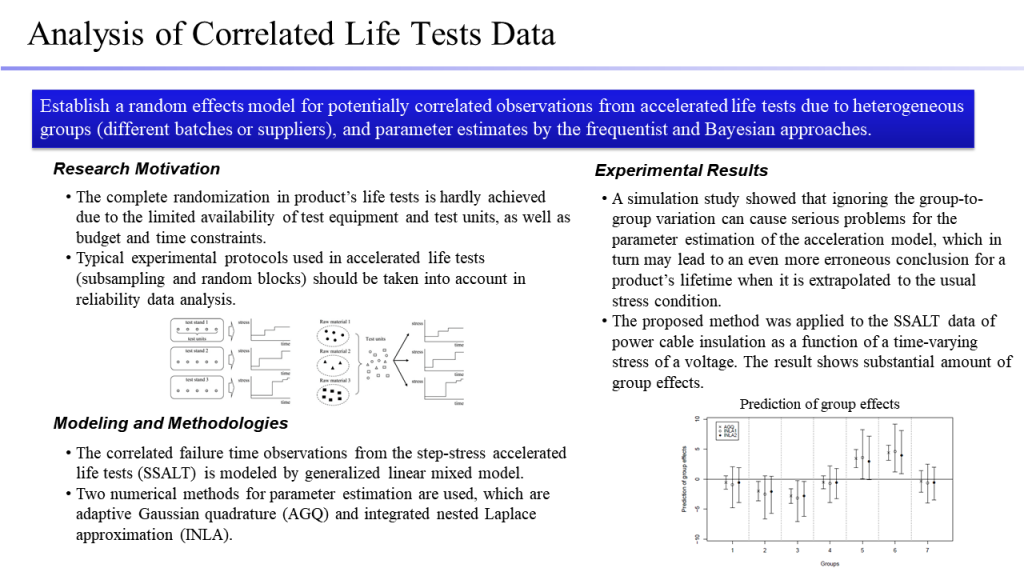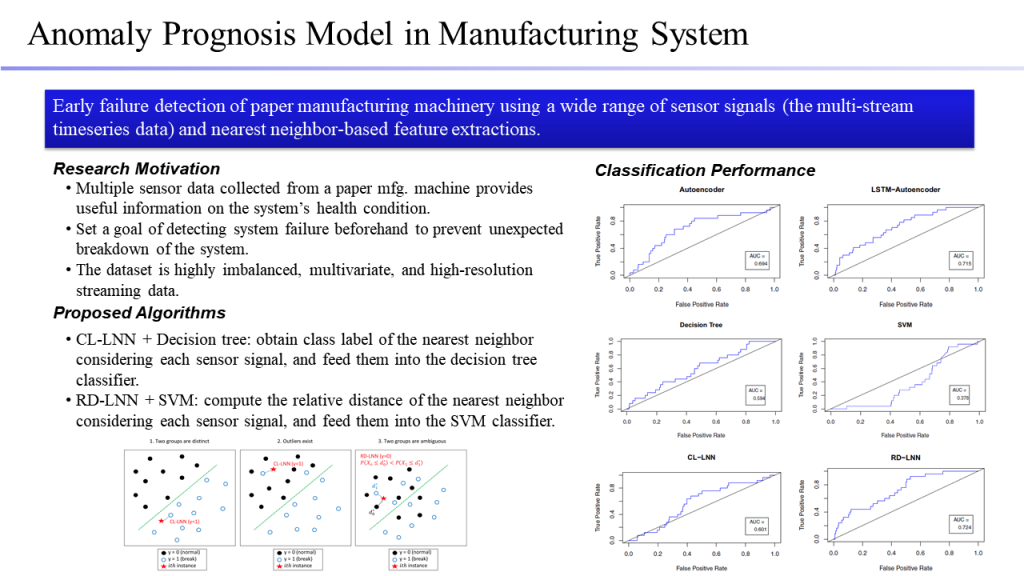Quality and reliability engineering seeks to ensure acceptable outcomes and reduce process failure in manufacturing and other systems.
Faculty
Kangwon Seo
- Analysis of Correlated Life Tests Data
- Anomaly Prognosis Model in Manufacturing System
Projects
Analysis of Correlated Life Tests Data
 Research Motivation
Research Motivation
- The complete randomization in product’s life tests is hardly achieved due to the limited availability of test equipment and test units, as well as budget and time constraints.
- Typical experimental protocols used in accelerated life tests (subsampling and random blocks) should be taken into account in reliability data analysis.
Experimental Results
- A simulation study showed that ignoring the group-to-group variation can cause serious problems for the parameter estimation of the acceleration model, which in turn may lead to an even more erroneous conclusion for a product’s lifetime when it is extrapolated to the usual stress condition.
- The proposed method was applied to the SSALT data of power cable insulation as a function of a time-varying stress of a voltage. The result shows substantial amount of group effects.
Anomaly Prognosis Model in Manufacturing System
 Research Motivation
Research Motivation
- Multiple sensor data collected from a paper mfg. machine provides useful information on the system’s health condition.
- Set a goal of detecting system failure beforehand to prevent unexpected breakdown of the system.
- The dataset is highly imbalanced, multivariate, and high-resolution streaming data.